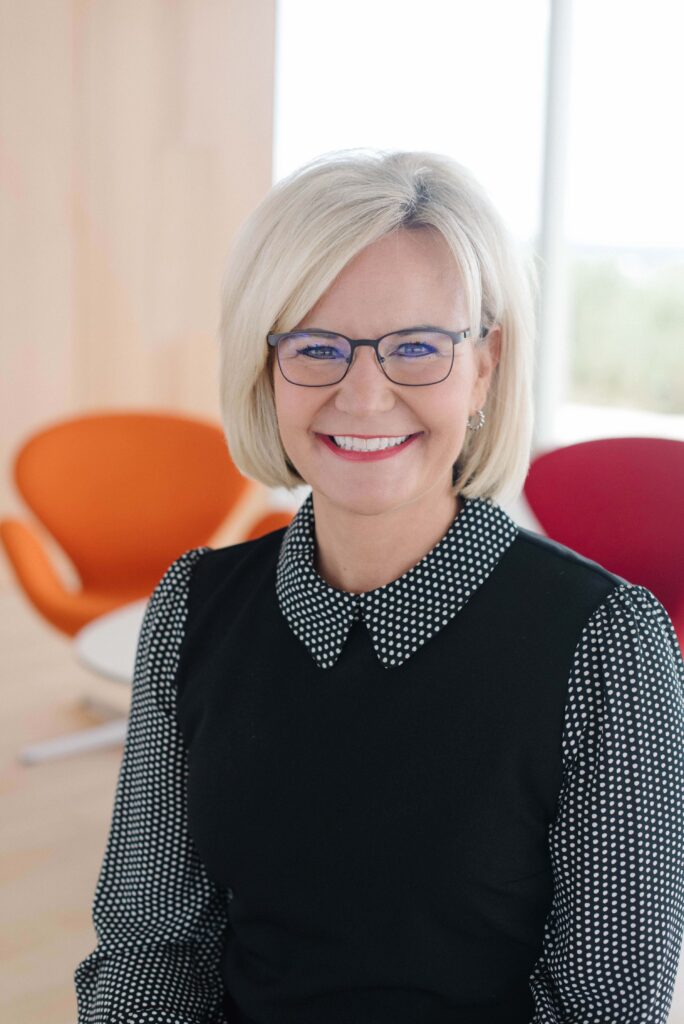A Closer Look: Mary Benetti
Take a closer look at the Science Center of Iowa's new director of advancement.

Before returning home to Iowa, Benetti worked as the director of external relations for Shoals Marine Laboratory, which is jointly operated by Cornell University and the University of New Hampshire. She also helped Cornell as it embarked on a $4 billion capital campaign. “There were 300 fund-raisers that work for the university, and I was just a cog in a big wheel,” she said. Now at the Science Center of Iowa, Benetti is focusing on building relationships throughout the community with individuals and corporations. She is currently raising funds for the Science Center’s new traveling exhibit, “Facing Mars,” which is set to open on June 2.
How did you end up going down the fund-raising route?
I spent some time away from the paid-working world and was a full-time homemaker. My kids were growing up very quickly, and so I started looking for a part-time job. I saw an ad in the newspaper for an organization that needed a development associate to work on events – they did a special signature event each year – and I thought to myself, ‘I can do that; I’ve planned birthday parties before.’ And I applied for the job and actually got it.
It was pretty straight from there: I worked as a development associate for a small human services organization in upstate New York, in Ithaca, N.Y. … I wanted to transition into full-time, so I took a job with the Shoals Marine Lab, which is located off the coast of New Hampshire, but the base of the operations was at Cornell University, so I actually worked for Cornell University. While I was at Cornell University, they embarked on a $4 billion capital campaign, which is hard for me – still now – to wrap my arms around. That’s a huge campaign. It was really interesting being a part of a machine – they know how to do fund raising. There were 300 fund-raisers that work for the university, and I was just a cog in a big wheel. I learned a lot. I got to a place in my life where my priorities were changing and I realized I could go anywhere. I was familiar with the East and the West coasts, but I was raised in Iowa, and I thought, “Gee, I want to go back to Iowa.” And I am absolutely delighted with my decision. I’m back with family again and it’s a much different place than when I left in the ‘80s.
What has been your favorite change to the area?
The rebirth of Des Moines. When I left Des Moines, it was dark and dingy to me – the perception of an 18-year-old, not knowing too much about the world. But it just wasn’t attractive at all. So coming here and seeing all this activity and construction and the growth of West Des Moines, the revitalization of neighborhoods, is great.
Des Moines is known for its generosity, but do you ever feel like you’re competing against other groups for funds?
I think that corporations have their priorities, their funding priorities, which is great because once we know them, we can tailor a solicitation or just say, ‘You know what? We’re just not going to fit.’ I don’t see other organizations as competitors; I think we all bring something that is special and needed in Des Moines. I applaud other organizations’ success, because when they do well, we all do well. The other thing that I noticed after moving here is I was talking to this woman in Garner, Iowa, and she was talking about undertaking a capital campaign to renovate the library. This was something that was desperately needed for the community. But she said, ‘We have to wait our turn,’ and I love that attitude. I think as Iowans, we get that. Not everyone can run their campaign when there is a need, because there are other organizations in town. She said, ‘We’re going to start our campaign after the theater is done with theirs,’ and I think that’s great.
How hard was it to raise funds during the recession?
We saw some interesting things. This is anecdotal, there are no statistics yet, but what we saw was that people who were in the middle of the giving pyramid had to pull back. They just had to. It was either because they lost their jobs or just didn’t have the income to support their organizations or alma maters or churches. But we also saw some interesting things happening at the higher levels; we saw that people at the high levels were actually increasing their gifts. That wasn’t universal, but we did see that. It was a very interesting time for fund-raisers. It really tested the nerves of a lot of people. I think that there were a lot of readjustments midstream, for instance the campaigns at Cornell, they just had to lengthen their timeline, which is what I think a lot of organizations did. But we did not stop fund raising; we did not stop talking to people.









